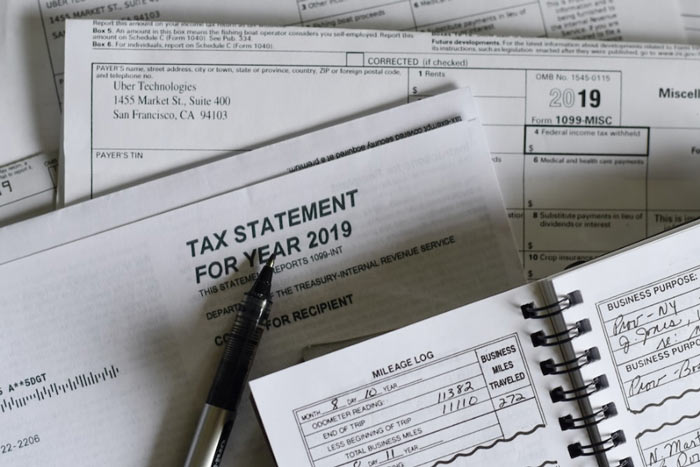How To Pay Taxes If You're Overseas
Sep 06, 2024 By Rick Novak
Are you living and working abroad but wondering how to stay on top of your taxes? If so, you’ve come to the right place. This guide will walk you through each step of paying taxes while overseas.
From understanding currency exchanges to IRS forms, we have all the information you need to accurately pay your international taxes without hassle or worry. With our comprehensive coverage and professional expertise, this blog post has everything you need for a stress-free tax season. Let’s get started.
Taxation Laws in Your Country of Residence

First and foremost, it’s important to understand the taxation laws in your country of residence. Each country has different tax legislation, so you want to ensure you are up-to-date with their regulations. If you have any questions or concerns, don’t hesitate to consult a tax professional who is knowledgeable about that specific jurisdiction.
Register with the IRS

For the Internal Revenue Service (IRS) to recognize you as an overseas taxpayer, you must register with them first. You can submit Form W7: Application for IRS Individual Taxpayer Identification Number (ITIN). This form must be submitted with supporting documents such as your passport, foreign identification card, and driver’s license. Once you have completed the form, mail it with all supporting documents to the IRS address provided on the form.
Be Aware of Currency Exchanges
Since you live overseas, your income will likely be in a foreign currency, so you must be aware of currency exchanges when filing taxes. The IRS requires that overseas taxpayers report their income in U.S. dollars regardless of what currency they were paid in. To do this, use a currency exchange rate from a bank or an online marketplace provider as you receive payment for your services rendered. Different rates may apply depending on where you are located and the payment received.
Report Your Earnings with Form 1040-NR
Once you have completed the steps above, you can report your earnings with IRS Form 1040-NR: U.S. Nonresident Alien Income Tax Return. This form must be filled out each year for all taxable income and deductions you made while living abroad in another country. It’s important to ensure that this form is filed on or before the April 15 filing deadline every year, or else you could face late penalties from the IRS.
Type of Taxpayer
- Resident: If your primary residence is in the United States, you are considered a resident for tax purposes and must file U.S. federal income taxes on all your worldwide income.
- Non-resident: If you have a permanent home outside of the United States or are present there for less than 183 days during the year, then you will be considered a non-resident for tax purposes and must only pay U.S. taxes on income that was generated within the United States.
- Dual resident: If you live outside of the United States but also maintain substantial connections (such as owning property or having a family member living there), you may be considered a dual resident and need to file both U.S. and foreign taxes on your income.
With these factors in mind, knowing what type of taxpayer you are before filing your taxes overseas is important. This will ensure that you meet the IRS requirements and those of any other countries you may have ties to.
Research Double Taxation Treaties and how they apply to you
If you are a dual resident, you can take advantage of double taxation treaties between the United States and other countries. These agreements allow taxpayers to pay taxes only in their country of residence or the country where their income was generated, so they don’t have to pay twice on the same income. It is important to research these treaties and how they apply to your situation before filing. You can find more information about double taxation treaties on the IRS website or by consulting a tax professional.
Submit Tax Returns According to Your Filing Deadline
Once you have completed all the necessary forms and gathered the necessary documents, it’s time to submit your tax returns. The deadline for submitting U.S. federal taxes from abroad is April 15, just like if you lived in the United States. However, some countries may have filing deadlines, which could differ from the U.S. filing date, so check with the IRS and local tax agencies before submitting your paperwork.
Some other rules and regulations apply depending on where you live and what type of taxpayer you are (resident/non-resident). You must familiarize yourself with these requirements to comply with foreign and domestic laws.
Explore digital tools and software to help track and report your taxes accurately.
For those worried about the complexity of filing taxes from abroad, many digital tools and software are available to help track and report your international taxes accurately. For example, HR Block has a tax calculator that simplifies calculating foreign income and deductions. Other online applications, such as TurboTax and Tax Act, can help you navigate the complex process of filing taxes overseas.
Knowing all applicable laws when filing taxes from abroad is important. Ensure you understand what type of taxpayer you are, familiarize yourself with local regulations, utilize digital tools and software for accurate reporting, and submit your returns before their deadlines. Doing so will ensure that your international tax filings are done correctly and in compliance with the laws of both countries.
FAQS
How do I file taxes if I live outside the US?
If you live outside the US, you must file taxes as a non-resident or dual resident. Non-residents must only pay US taxes on income generated within the country, while dual residents may be able to take advantage of double taxation treaties between the US and countries they have ties to. It is important to research these treaties and how they apply to your situation before filing. You can find more information about double taxation treaties on the IRS website or by consulting a tax professional.
How can I avoid double taxation?
If you are a dual resident, you can take advantage of double taxation treaties between the United States and other countries. These agreements allow taxpayers to pay taxes only in their country of residence or the country where their income was generated, so they don’t have to pay twice on the same income. It is important to research these treaties and how they apply to your situation before filing. You can find more information about double taxation treaties on the IRS website or by consulting a tax professional.
How do digital nomads pay taxes?
Digital nomads must pay taxes in the country they live in and any countries where they generate income. This can be complicated and time-consuming, so many digital nomads use tax software and other online tools to track and report their income effectively. There are also options for filing taxes electronically from abroad or using a third-party firm to manage the process. Researching these options and finding the one that best fits your needs before filing is important.
Conclusion
Although paying taxes, if you're overseas, can be complex for the many individuals and businesses who provide goods and services abroad or plan to move overseas to work or retire soon, understanding these processes is a necessary part of being a responsible global citizen. Of course, not all individuals or businesses must pay taxes in countries where they don't live. However, it's still essential to take the time to understand the tax codes of several nations.

Nelnet Student Loan Servicing Review

How to Start Trading Early

Unitranche Debt: An Overview

Discover it Student Cash Back Credit Card: A Detailed Review

Personal Loans vs. Car Loans: Which is Right for You?

Best LLC Filing Companies

How to Avoid Penalty on Premature Withdrawal of Fixed Deposit?

Medical vs. Financial Power of Attorney: What You Need to

How to Make Smart Financial Decisions as a Young Professional: Rent or Buy?

